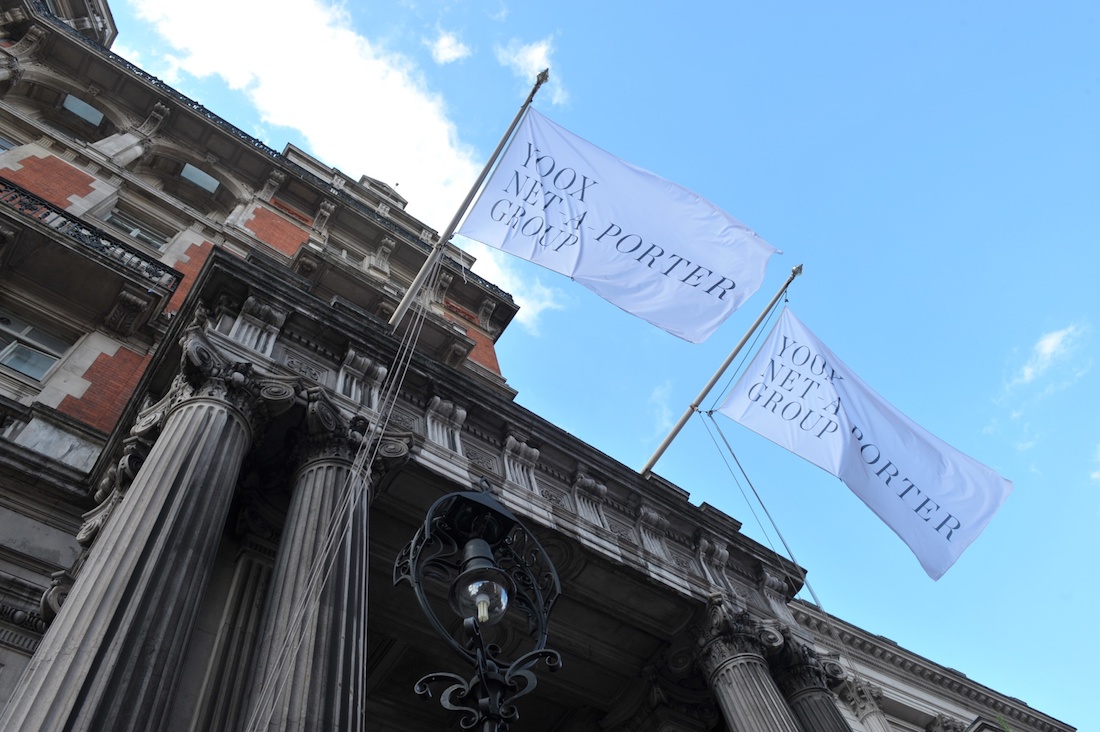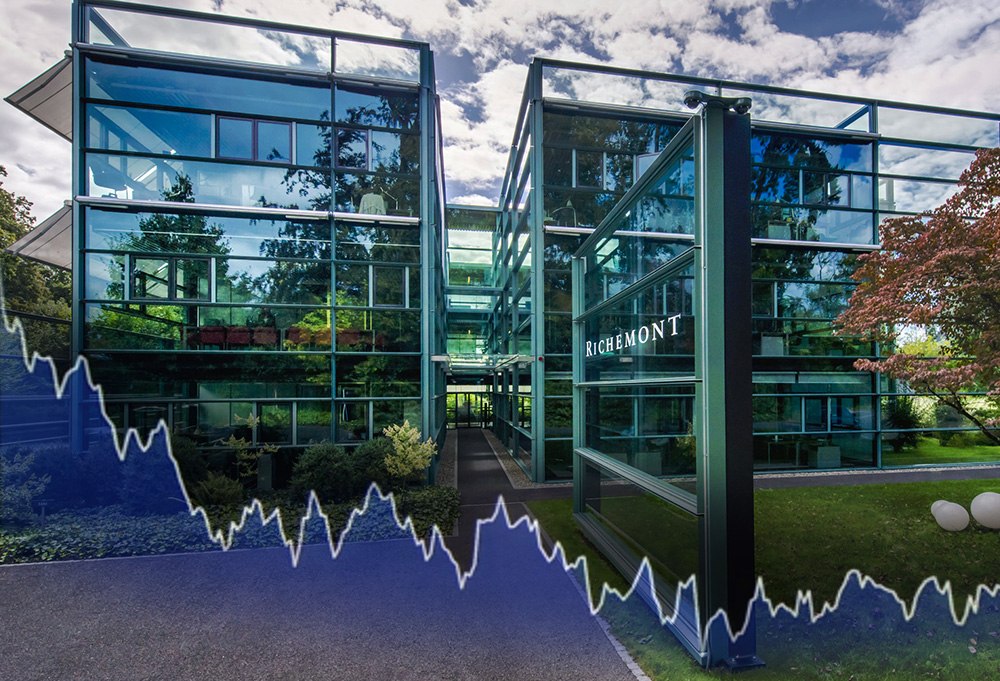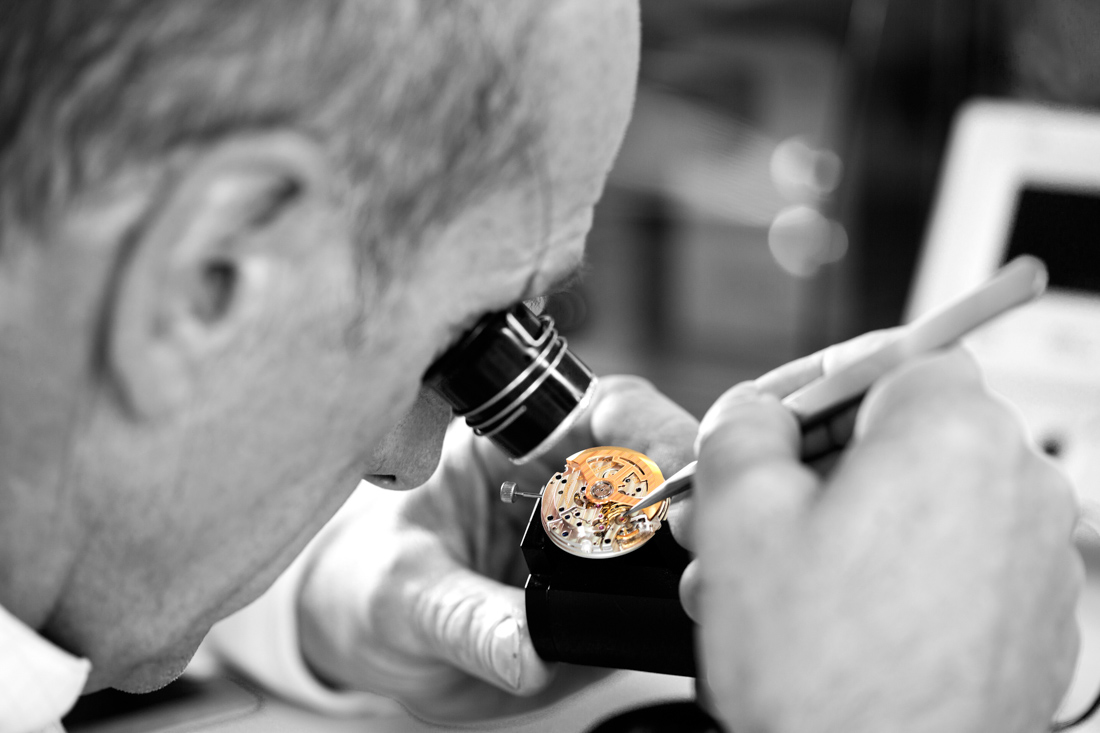
E-Commerce & The Direct To Consumer Push
Where Richemont has not seemingly made any significant acquisitions or announcements is in creative marketing production. The group, like most watch brands, has traditionally relied on mostly third-party contractors for the production of creative assets and marketing materials. I’ve faulted this practice in the past because it typically doesn’t result in very effective results. Frequently said results show a lack of true understanding of and dedication to the product or brand and/or a retreat to the regurgitation of non-brand-specific “values” and clichés. The reason I mention marketing asset production is because Richemont has very ambitious plans to vertically integrate its relationship with consumers.
Traditionally, products of Richemont Group brands were mostly sold at third-party retailers. More recently Richemont has instructed more and more of its brands to focus on opening their own stores in order to sell their products directly to consumers. When successful, this practice allows for a brand to capture a much larger margin per sale and thus be more profitable. The strategy was not a complete success however because consumers often bought (and continue to buy) products outside of mono-brand boutiques, for those didn’t offer anywhere close to the best available prices. Richemont’s ambitions have not been thwarted.
While third-party retailers will always likely have a place in Richemont’s point of sale portfolio, the group seems keen to own their retailers as well as their customers. In order to facilitate direct sales to consumers in the way Richemont wishes, it needs to first attract consumers, persuade them, sell to them, and then service them. Doing all of this will require a full and effective scope of skills and tools that the Richemont Group is not currently known for. Acquisitions such as NET-A-PORTER and Watchfinder UK are a big push in that direction.

More interesting (and perhaps a wise concern for any internet watch media company) is that there appears to be a trend for watch brand marketers to feel as though their needs are best served when they can reach consumers directly. Tools like social media advertising and other purported targeted digital marketing probably give groups like Richemont hope that they can reach consumers without having to go through traditional gatekeepers like the media or third-party retailers. My theory is that a combination of tools and internally-owned resources will see Richemont Group brands (and likely also their competitors) attempt to entirely bypass most forms of traditional media when it comes to reaching consumers. This begins with initial customer acquisition all the way through to marketing to those same consumers for future purchases or service needs in the future.
Effectively doing all of the above may not prove possible or even practical. European luxury brands have a deserved reputation for being “control freaks,” which means they typically want to do everything themselves. These same organizations have routinely demonstrated that while they can produce a lovely and timeless luxury product, they aren’t always very good at selling or marketing those products. The Richemont Group appears to believe that it can overcome a litany of cultural and organizational hurdles to allow their brands to be “good at everything.” I don’t think this is likely to happen and it appears that Richemont is starting to appreciate this as well. Allow me to explain.

Until recently the big push was for watch brands to have their own stores, e-commerce platforms, marketing, customers, etc. This not only proved massively redundant in many ways for brands in the same group, but also expects too much aptitude from each brand. The result was that direct distribution to consumers in many instances is not performing better than distribution through third-party retailers. So what is a group like Richemont to do? A likely move is simply to own their own third-party distribution stores. If Panerai for example is having trouble selling direct to consumers via their own e-commerce store, why not simply sell them via group-owned Mr. Porter? And that is exactly what is happening.
The bigger question for me which is still unanswered is how the Richemont Group plans to handle the massive and ongoing marketing needs its many brands require if they are going to heavily rely on direct to consumer sales. Remember that even if the group is able to retain more margin per sale (since they don’t need to share margin with a third-party retailer) they need to sell one product at a time versus larger volumes of goods to third parties via wholesale orders.
It isn’t clear yet what exactly Richemont has in mind for Watchfinder UK or the various YOOX NET-A-PORTER brands. Whether these will be educational tools, independently run money-making assets, or distribution points for other Richemont Group products has yet to be seen – and in all likelihood it will be a combination of the above. Success will ultimately hinge not on investment dollars but rather on effective management and leadership when it comes to the Richemont Group’s digital ambitions, but this goes without saying.

The Shrinking Industry & Future Outlook
What the Richemont Group doesn’t need to worry about is time (no pun intended). While it wants to improve its business and the performance of its brands as quickly as possible, it has enough cash to do so very closely. Richemont remains a very rich company with the resources to experiment and adapt over a longer period of time than most of its competitors. While to timepiece enthusiasts it might appear as a number of Richemont Group brands are floundering, the reality is that most of them are in the middle of complicated and often painful transitional periods. My own estimation of the global watch market is that despite strong consumer demand, the luxury watch industry has no choice but to shrink.
Shrink in regard to the number of watches produced each year because the watch industry is still extremely vulnerable to overproduction – something the Richemont Group has openly acknowledged. That means less watches need to be produced each year in order to allow the watch industry to stabilize so that production meets actual consumer demand. Making less watches means needing less people and that means shrinking teams and departments which is the type of shrinking I am talking about. I estimate that from its highpoint in around 2012, to return to stability the watch industry will need to produce about 50% less watches each year. Why that is I have elaborated on in previous articles and we will of course discuss this issue in future feature articles.

At first, although some growth-hungry investors might loathe the notion of anything that means less and not more at a business they own shares in, I am sure they hold the modest but reliable return and overall stability of the company in higher regard than a high-risk growth pattern year over year. This is where I mean the Richemont Group as an investment instead of a company whose brands, employees, and products aBlogtoWatch talks about. Although I hold no position in the Richemont Group from an investment standpoint, I think it is appropriate to address the investors and advisors we reach who read this article. As I said above, Richemont is both cash rich and regularly distributes dividends (though dividends these days across most companies are modest at best). If I owned stock I would simply hold on to it.
For other decisions I’d like to determine a bit more about what Richemont will be doing with their new internet properties. I fully believe that the future of any luxury watch brand is its ability to effectively reach and sell to consumers – the two biggest problem areas watch brands face today. While we do regularly see instances of cost-cutting in products or lazy new product development, these are actually easily avoidable. Whereas a failure to market a brand effectively can cripple a watch brand, most of them are able to bounce back in often just a few years’ time after some successful product launches. A strong manufacturing base is easily the most valuable asset the established luxury watch industry has at its disposal these days – and this is an area that the Richemont Group is very well positioned in, serving it with the foundations on which to structure the solutions of their aforementioned challenges.
